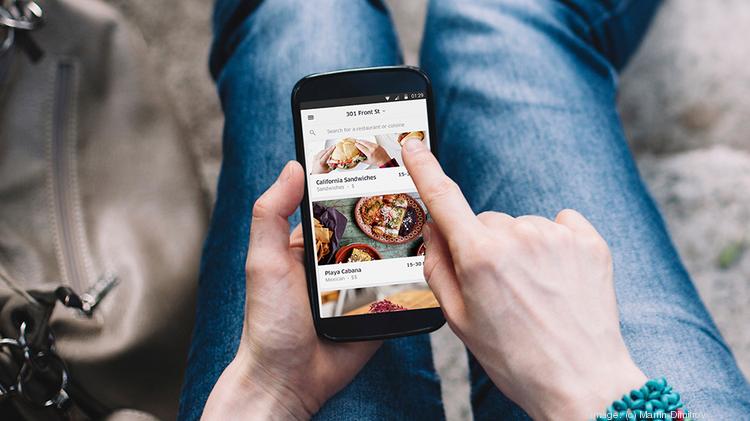Uber food delivery service expands to East Bay after successful S.F. launch
UberEats has added the East Bay to its growing food delivery network.
The service launched Tuesday in Oakland, Berkeley, Alameda, Emeryville and Piedmont and includes more than 100 restaurant partners, including dining hotspots like Kronner Burger, Duende and A16 as well as cult favorites like Zachary's Pizza and A.G. Ferrari.
The service, Uber's foray into the food-delivery business, has been live in Los Angeles, Chicago, Atlanta, Toronto and New York since last summer. Itexpanded into San Francisco a few months ago with great success, according toSusan Alban, general manager of UberEverything, the company's on-demand delivery arm.
"We're very excited to expand our footprint in the Bay Area. It's been going extremely well [in San Francisco] and we're happy to keep bringing eaters more of what they want," Alban said.
The service also expanded into San Diego and more neighborhoods in Los Angeles today, creating a total of 11 regional areas and cities in the network.
The service's expansion comes at a tense time for food delivery companies. SpoonRocket, one of the earliest on-demand food delivery services, shut down earlier this year, sighting funding issues in an increasingly crowded market.
Investment in food delivery reached $3.22 billion in 2015, according CB Insights, and Bay Area-based Postmates, Sprig, Caviar, Munchery and SpoonRocket alone snagged a combined total of $78 million in funding that year. At the beginning of this year, Instacart closed a funding round of $220 million, valuing the startup at $2 billion. And early in 2015, Yelp purchased online food ordering service Eat24for $134 million.
However, funding for on-demand services is cooling fast. The first quarter of 2016 saw $1.3 billion in on-demand investment, a huge slump compared to the first quarter of 2015's $5.1 billion.
Uber, however, is not worried about the competition or the funding woes. Just this month, the company raised $3.5 billion in cash from Saudi Arabia in the largest single investment ever made in a private company. Its growing status as a multi-armed on-demand service mat also make it less vulnerable to food delivery-specific funding woes.
"The competition shows that there's a huge demand for this service," Alban said. "And Uber can be distinctive in this space in many ways."
Alban cited Uber's history of working exclusively on its dispatch capabilities as well as its extensive network of drivers as its competitive edge in this space.
Uber plans to keep expanding this service across the U.S., as well as continue to grow its recently launched home grocery delivery service.

No comments:
Post a Comment